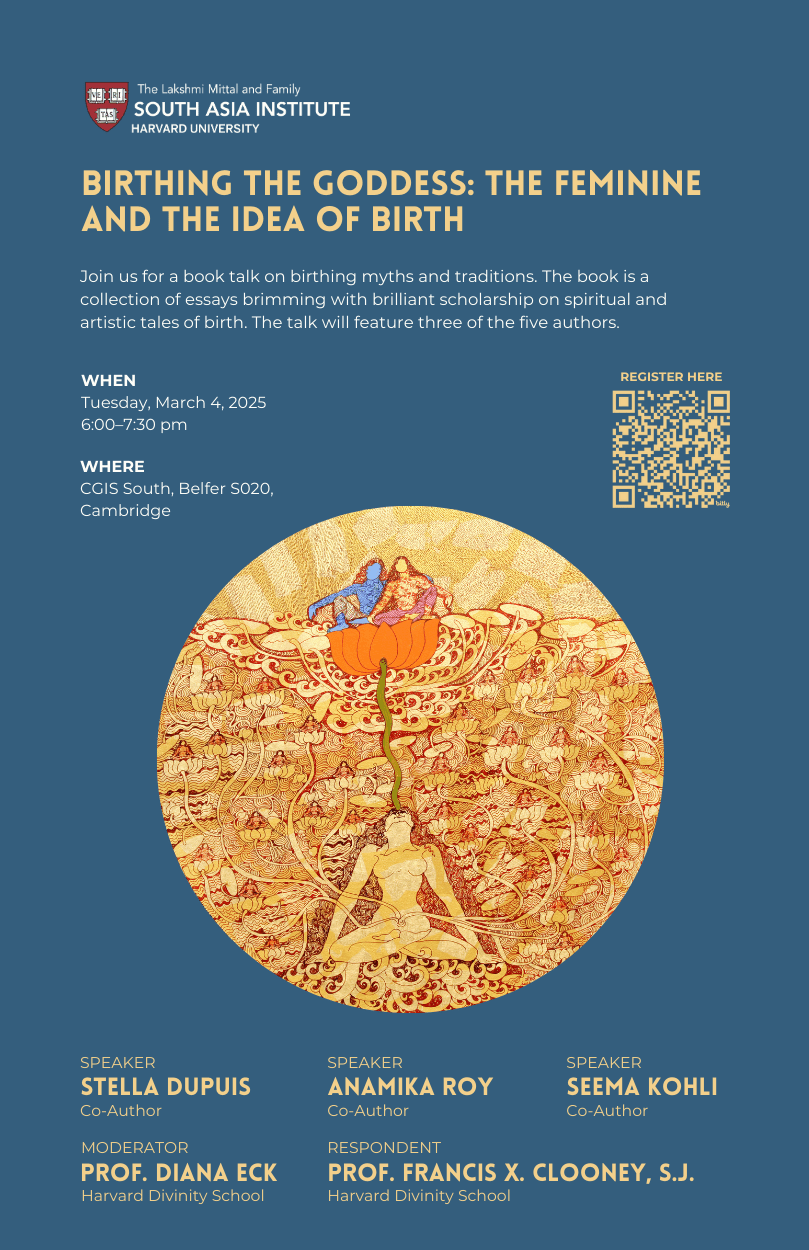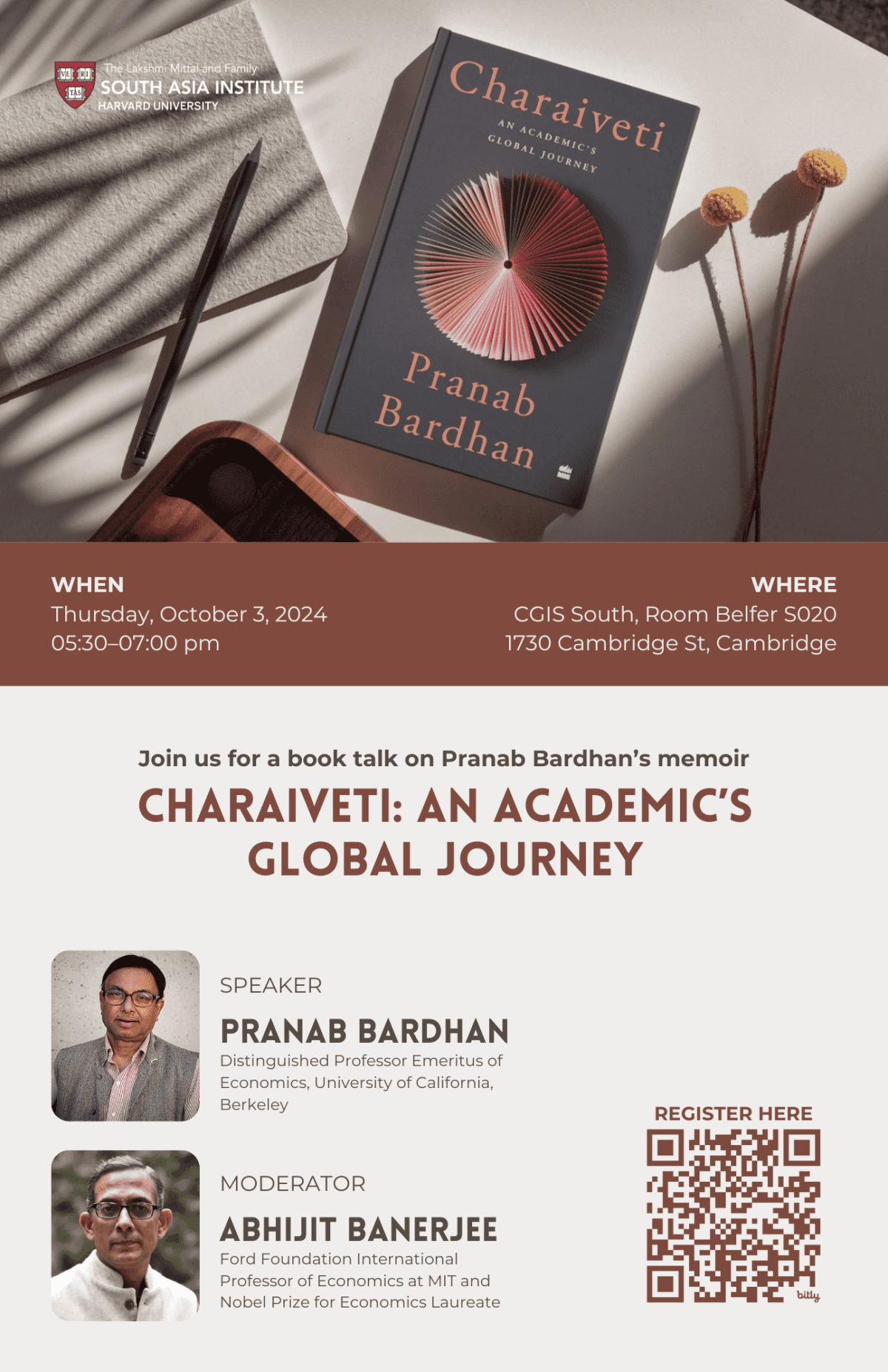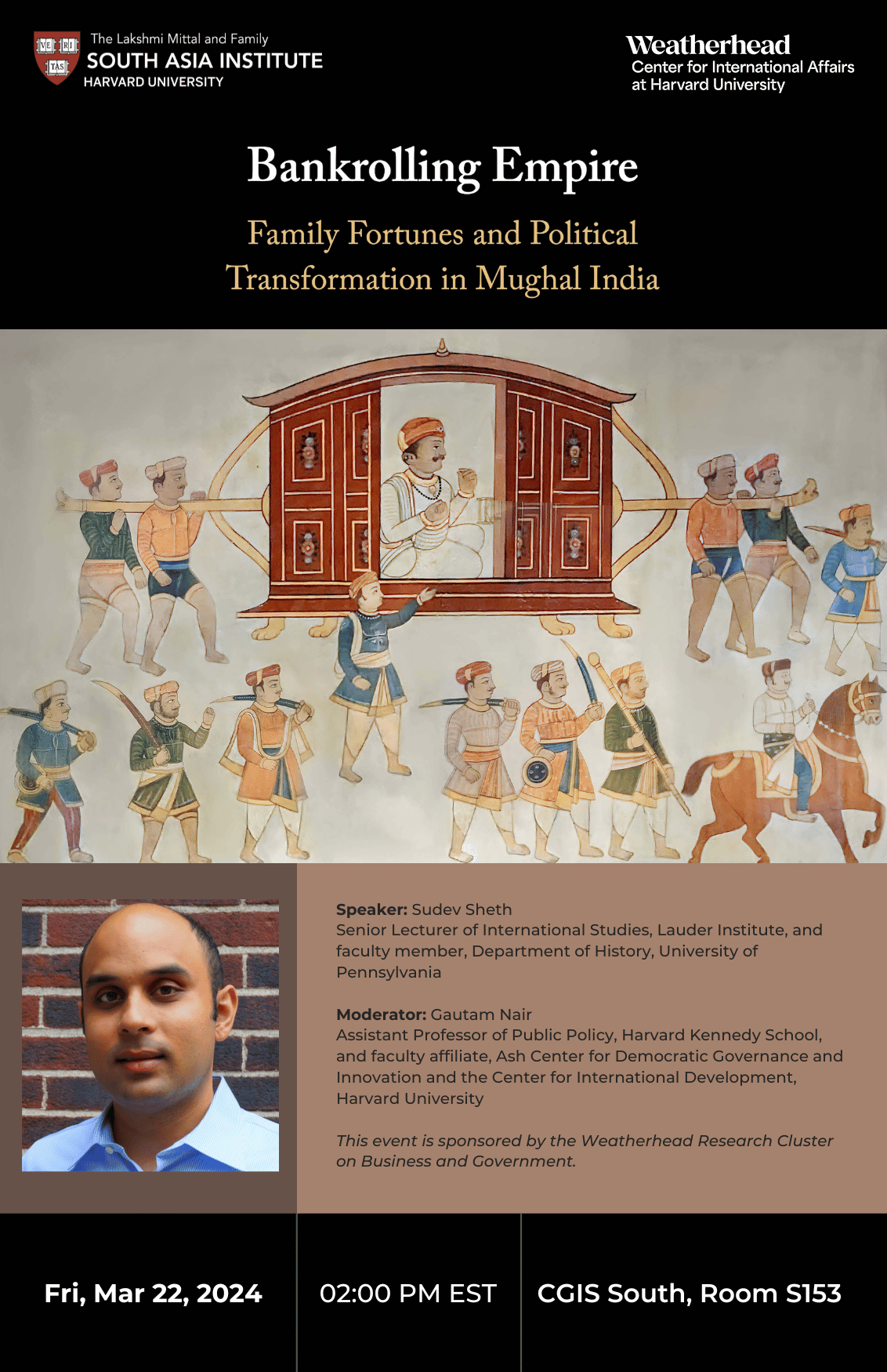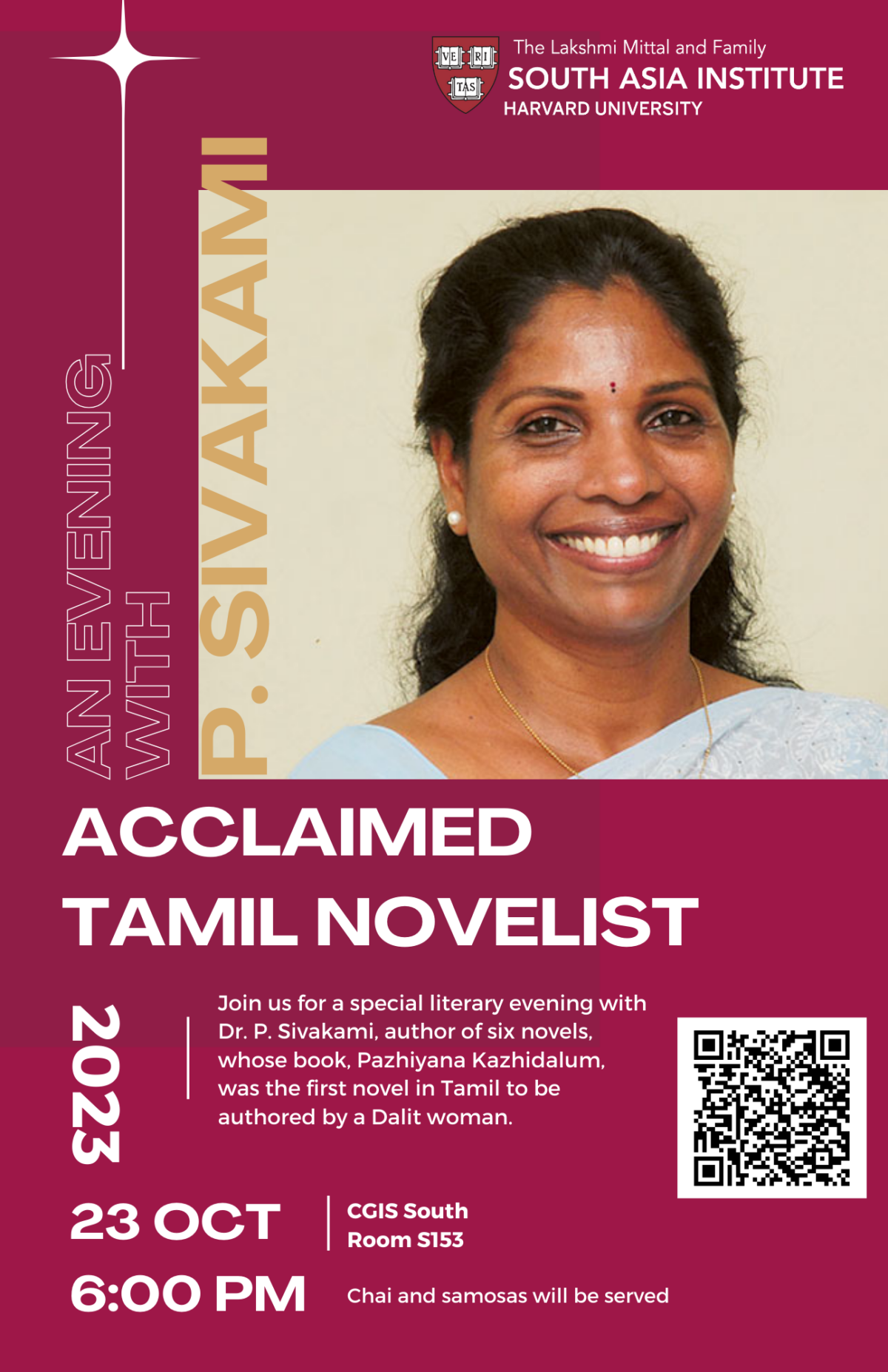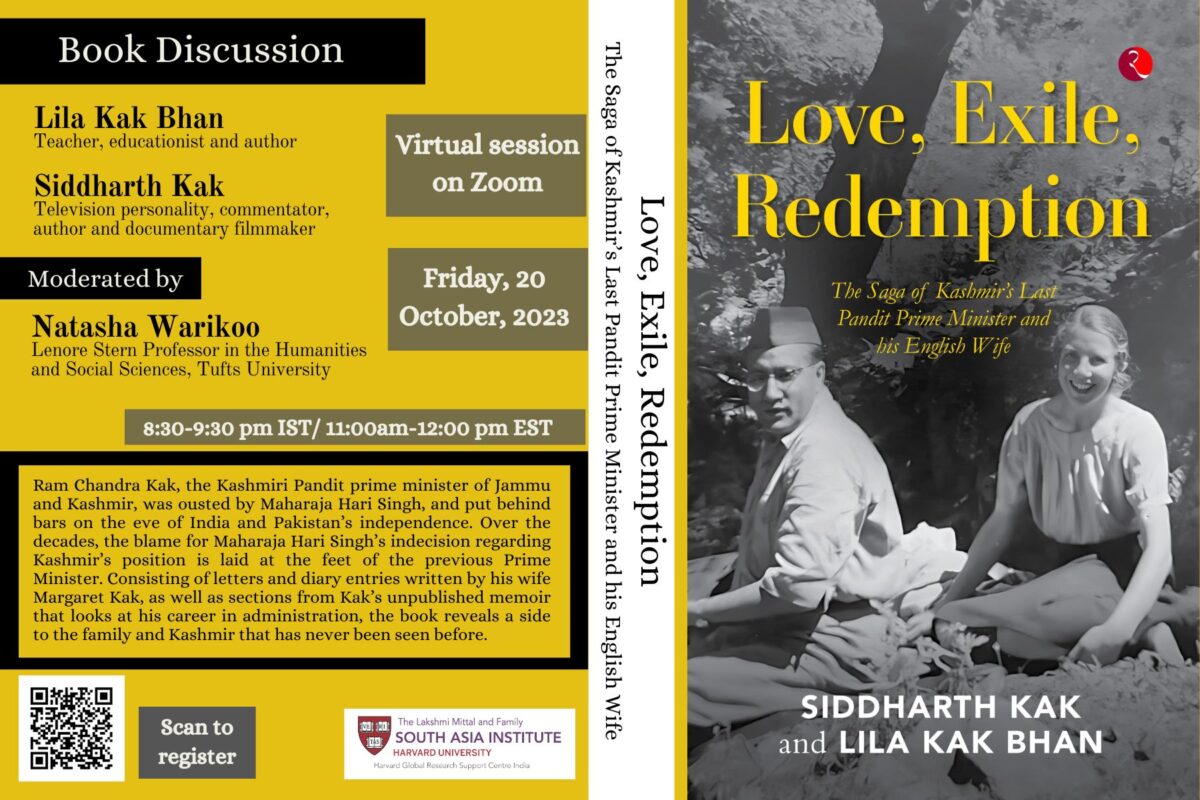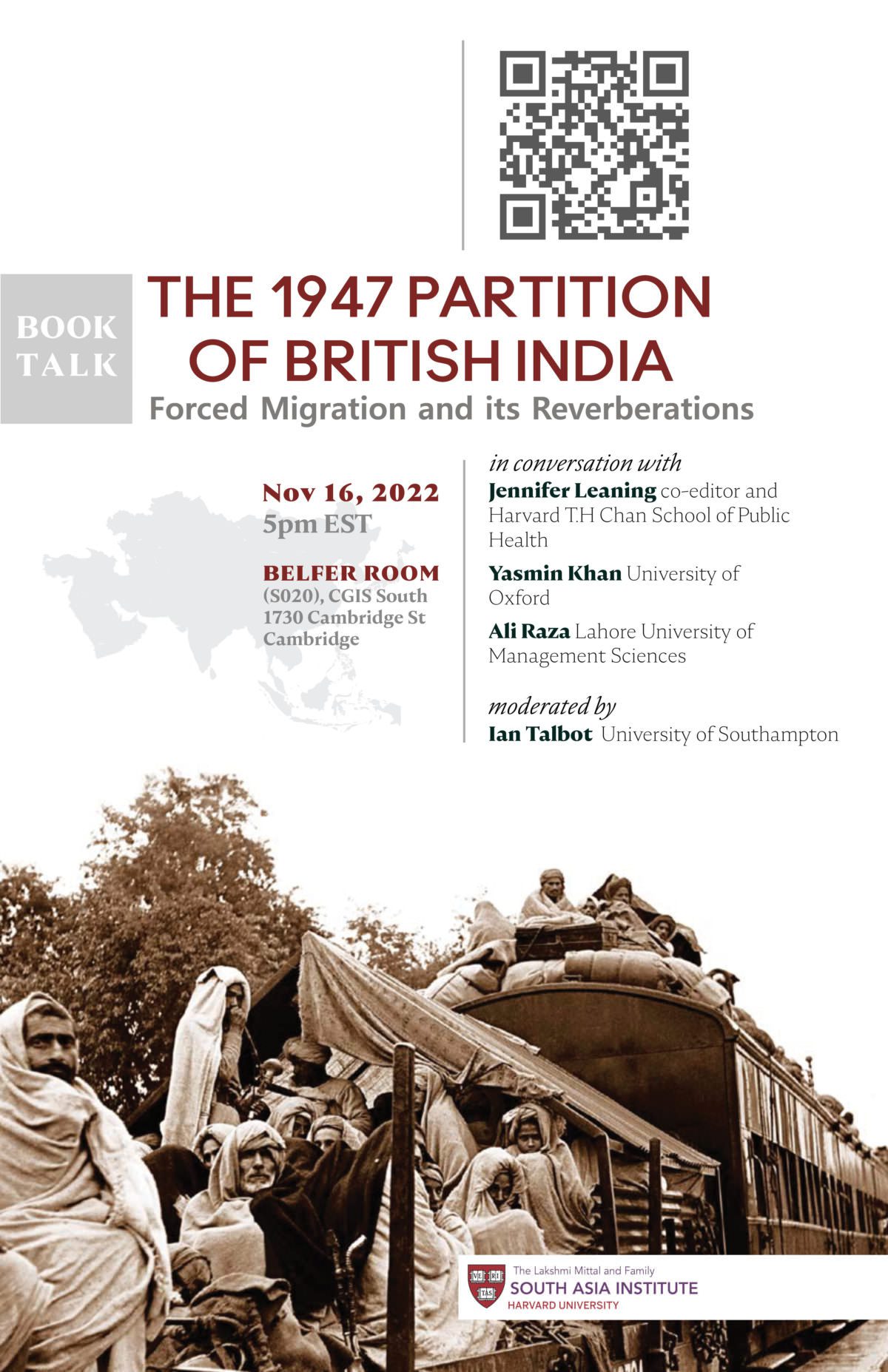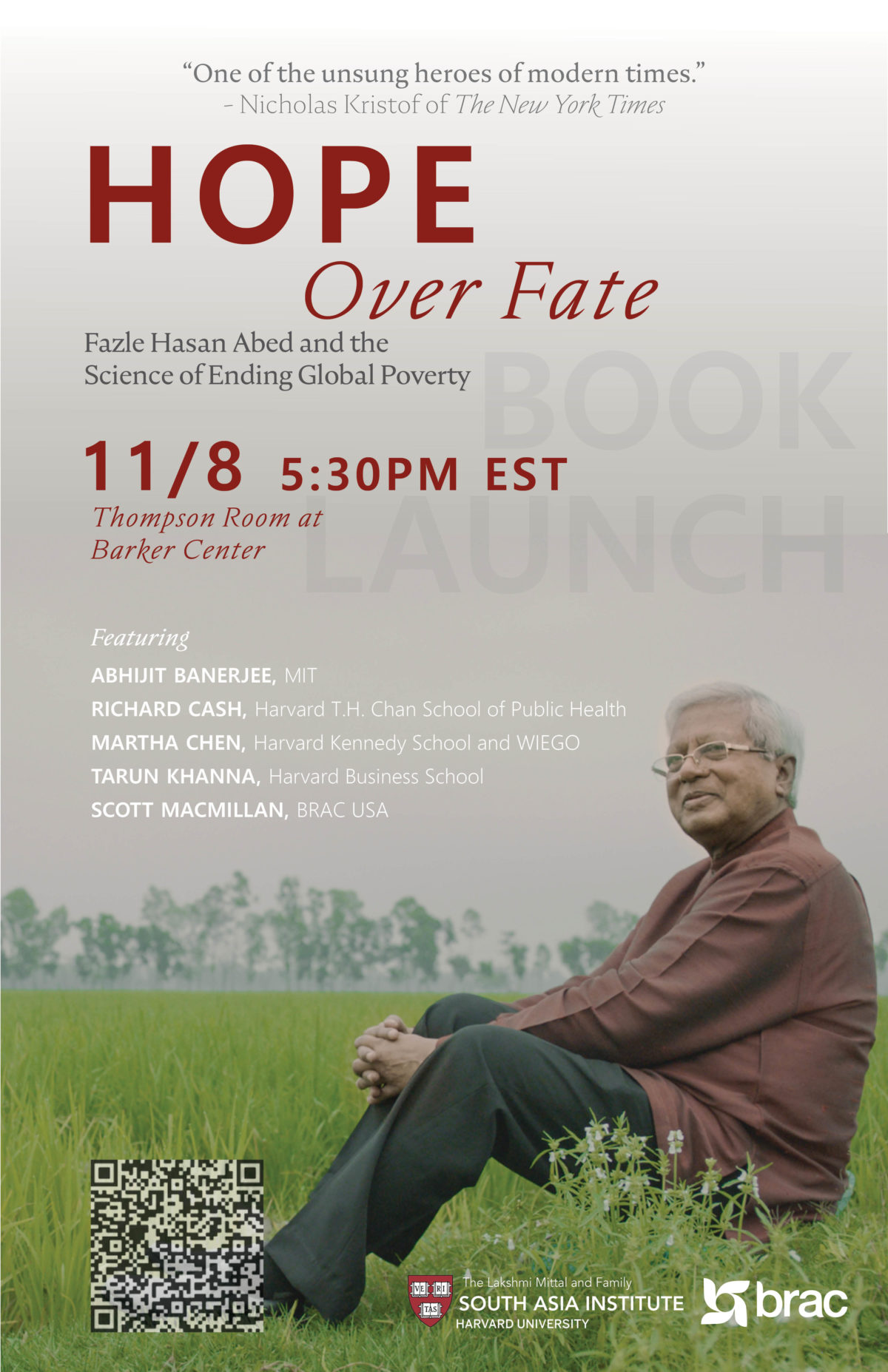WHEN
Tue, Mar 4, 2025 from 06:00pm — 07:30pm, ET
Join us for a book talk with three of the five authors of ‘Birthing the Goddess: The Feminine and the Idea of Birth’: Stella Dupuis, Anamika Roy, and Seema Kohli.
More InfoWHEN
Tue, Nov 19, 2024 from 02:00pm — 03:30pm, ET
The India Caucus at Harvard Kennedy School and the Mittal Institute invite to you a fireside chat with Lakshmi Puri, Former Assistant Secretary-General of the UN, to discuss her critically acclaimed and best-selling novel, Swallowing the Sun.
More InfoWHEN
Thu, Oct 3, 2024 from 05:30pm — 07:00pm, ET
Join us for a book talk on Pranab Bardhan’s memoir “Charaiveti: An Academic’s Global Journey,” in conversation with Abhijit Banerjee.
More InfoWHEN
Fri, Sep 27, 2024 from 11:30am — 12:15pm, ET
VENUE
Hybrid – 641 Huntington Avenue, Boston, and online via Zoom
Join the Department of Global Health and Social Medicine, Blavatnik Institute, Harvard Medical School, for a discussion by Dr. V. Mohan on his book “Making Excellence A Habit: The Secret to Building a World-Class Healthcare System in India.”
More InfoWHEN
Wed, Jun 12, 2024 from 06:30pm — 08:00pm, IST
Join us for a scintillating conversation with the distinguished Gurcharan Das on his much admired and humorous memoir, ‘Another Sort of Freedom’, about one man’s struggle to give purpose and meaning to life.
More InfoWHEN
Fri, Mar 22, 2024 at 02:00pm, ET
VENUE
CGIS South, Room S153
Sudev Sheth, University of Pennsylvania, will discuss his new book “Bankrolling Empire: Family Fortunes and Political Transformation in Mughal India.”
More InfoWHEN
Wed, Feb 21, 2024 from 06:00pm — 07:30pm, ET
Organized by the Lakshmi Mittal & Family South Asia Institute at Harvard University, the session will host a conversation around Prof. Sugata Bose’s new book Asia after Europe – Imagining A Continent in the Long Twentieth Century. The talk will be moderated by Prof. Jayati Ghosh, Professor of Economics, University of Massachusetts Amherst, USA.
More InfoWHEN
Mon, Oct 23, 2023 at 06:00pm, ET
Dr. P. Sivakami is an acclaimed Indian author who writes across many genres of literature. She is the author of six novels, four collections of short stories, and many essays and other works of non-fiction.
More InfoWHEN
Fri, Oct 20, 2023 from 11:00am — 12:00pm, ET
The Mittal Institute brings to you a book discussion on ‘Love, Exile, Redemption: The Saga of Kashmir’s Last Pandit Prime Minister and his English Wife’ with authors Lila Bhan and Siddharth Kak, and moderated by Natasha Warikoo, Lenore Stern Professor in the Humanities and Social Sciences, Tufts University. CLICK TO WATCH THE EVENT! Date and […]
More Info